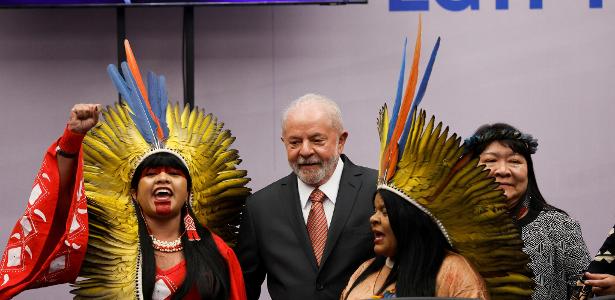The busy week in the field of international politics was not only a calendar coincidence, but also an opportunity for the new president, Luiz Inácio Lula da Silva (PT) to clarify the weight he should give to this area in his next term.
The message is clear: in this area, Lula will be moderate, but not humble. It will be moderate in the sense that it will: 1) privilege a universalist vision in the composition of the group of allies and partners, diversify dialogue with the global north and south, and ensure good dialogue with both the great powers and other countries. players the developing world;
2) seeking multilateral support to promote Brazil’s interests, leveraging the values and principles that currently govern the international system and the legitimacy of existing institutions;
3) It will be willing to listen to domestic actors of different profiles and trajectories in the foreign policy-making process, which will contribute to a careful and pragmatic performance, possibly forcing it to deviate from overly controversial commitments and polemical ideological overtones.
Despite this, Lula will not be humble. The priority will be to maintain an active agenda for Brazil, as the incoming president often stresses. This means:
1) will be determined to strengthen an agenda in South America, but will certainly see Brazil not as a regional actor but as an actor with global claims and interests;
2) seek leading roles in multiple thematic areas, starting with but not limiting itself to more prominent areas of international recognition, such as the environment, while also considering high political issues such as international security and economic governance;
3) It will be willing to clash with the positions of the great powers when it means the defense of national interests, starting with relations with the USA regarding China and Russia, and also with the European Union regarding agricultural protectionism.
One of the first lessons we learn when we study international politics is that there is “no power vacuum” in the world, so that there will always be those who come forward to occupy the spaces left empty. Brazil’s absence from international discussions seems to be coming to an end.
Its vice president, Jair Bolsonaro (PL), has simply been forgotten by international counterparts, and many of his agendas representing minority positions will quickly be overcome in the wheels of diplomacy. Although Lula has not yet taken office, he is already pop star international relations.
The question now remains: After its honeymoon with the new president, now celebrating a vocal leader, to what extent will the world be willing to meet Brazil’s ambitions?
source: Noticias
Mark Jones is a world traveler and journalist for News Rebeat. With a curious mind and a love of adventure, Mark brings a unique perspective to the latest global events and provides in-depth and thought-provoking coverage of the world at large.




